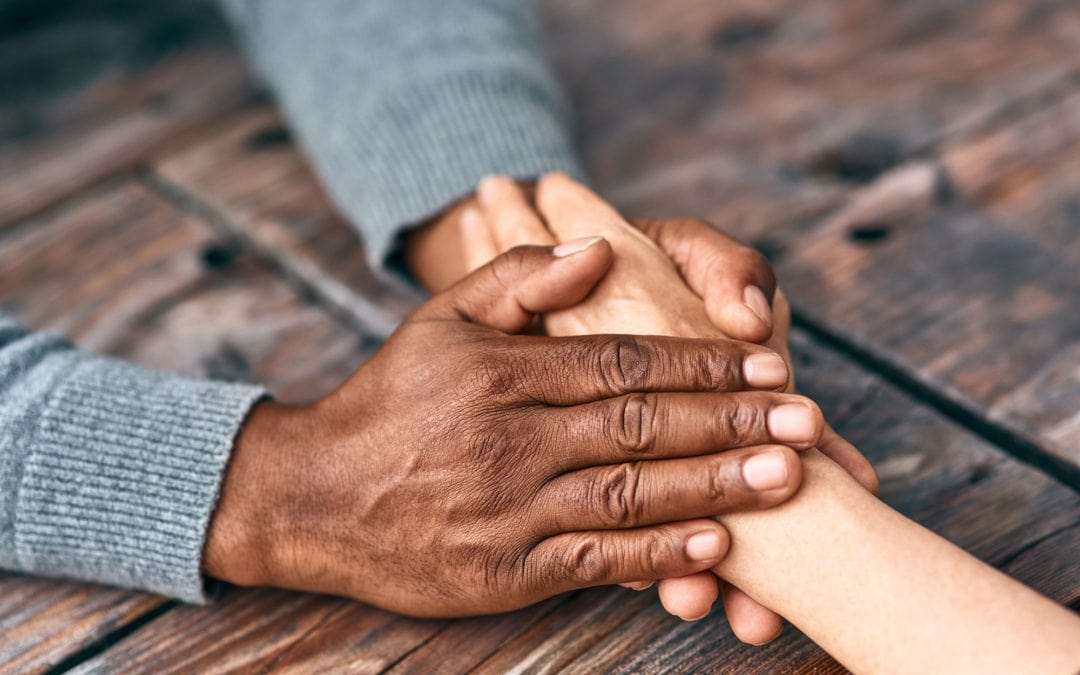I’ll admit, it’s been an emotional two months. In August, my dear friend and mentor, Karen Kirby, RN, MSN, died from cancer. Then, in September, our Guardian Nurses’ colleague and friend, Mary Jane Darbee, RN, BSN also died from cancer. This month, another dear friend’s wife died tragically after ‘routine’ surgery.
As I watched and listened as people offered their condolences to the families of Karen, Mary Jane and Christina, I was reminded of something I learned a long time ago—not everyone knows what to say or what to do when someone is hurting.
This issue of The Flame offers some ‘care instructions,’ thanks to author Megan Devine, for how to help someone who is grieving.
— Betty Long, RN, MHA, President/CEO, Guardian Nurses Health Advocates
Helping Someone Who is Grieving
If you are trying to help someone who is grieving, you should know that sometimes you can do everything right, and your friend will still not answer your texts, show up to your party or acknowledge that your support is helping at all.
Remember that evidence of ‘helping’ is not in the reduction of their pain; it’s in knowing the grieving person feels supported and acknowledged inside their pain. Even if your intention is to support them, it still might not feel so good for your friend.
As Megan Devine suggests in her book, “It’s OK That You’re Not OK,” wouldn’t it be great if people came with care instructions like a new shirt? “When I feel sad, please do this” or “You’ll know when to back off when you see me do this.”
Devine offers a “do this, not that” checklist which offers many suggestions if you’re trying to help someone who is grieving. Here are a few:
- Don’t compare griefs. Everyone experiences loss, but each loss is personal. Instead, ask questions about their experience. Connect with someone by showing curiosity about what their grief is like for them.
- Don’t fact-check and don’t correct. Resist the urge to challenge or correct someone’s timeline or their recall of the events. Let them own their experience. It’s not important who is more correct.
- Don’t minimize. Maybe you think your friend’s grief is out of proportion to the situation, but your opinions about their grief are irrelevant. They get to decide how bad things feel just as you get to make decisions in your own life.
- Don’t give compliments. When someone you love is in pain, they do not need to be reminded that they’re smart, beautiful, resourceful, or a good person. Don’t tell them they’re strong or brave. Grief isn’t typically a failure of confidence.
- Don’t talk about ‘later.’ When someone you love is in pain, it might be tempting to talk about how great things will be for them in the future. Right now, the future is irrelevant.
- Don’t evangelize or charge ahead with solutions. Suggesting “You should go out dancing” or “Melatonin helps me sleep, you should try it” will not be helpful. In all things, not just in grief, it’s important to get consent before giving advice or offering strategies. Most folks just want to be heard and have their feelings validated. If you see them struggling, ask if they would like to hear what’s helped you in the past. One suggestion is to say “Are you wanting empathy or a strategy right now?” Respect the answer.
- Remember, this is not about you. Being with someone in pain is not easy. Things may come up for you. Your feelings may likely be hurt. Your friend cannot show up for their part of the relationship very well. Don’t take it personally.


This is a good read. I would like to add that there is no timeline for grief. Sometimes it can get harder as time goes on.
These are great recommendations, especially remembering that it’s not about you and to not take anything said personally. It’s so hard to know what to say and what not to say when someone is grieving. I found some additional helpful ideas here: https://superiorhh.com/show-support-for-someone-grieving/